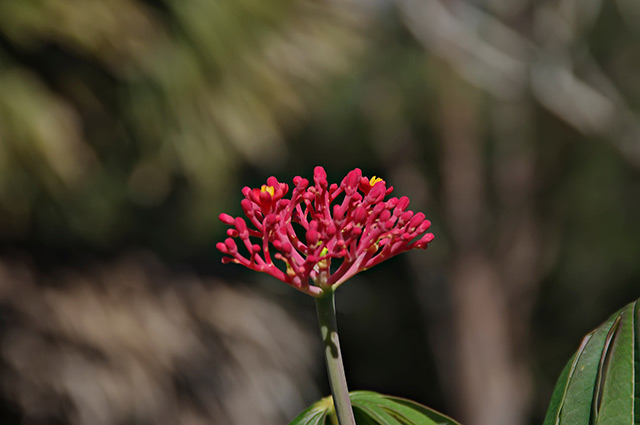A traditional medicine from Myanmar could hold the key to newer and better influenza treatments
09/12/2018 / By Michelle Simmons

In past studies, the coralbush (Jatropha multifida), a medicinal plant from Myanmar (Burma), has been reported to contain antimicrobial, antimalarial, and anti-tumor activities. However, its anti-use to fight influenza had not yet been proven. Therefore, researchers at the Tokushima Bunri University, University of Toyama, and the University of Yangon evaluated the anti-influenza activity of the coralbush plant.
For the study, the researchers prepared four extracts from the stems of the coralbush: water, ethyl acetate, n-hexane, and chloroform extracts. Then, they assessed the survival of Madin-Darby canine kidney (MDCK) cells, a general model for epithelial cells, infected with the influenza A (H1N1) virus. In addition, they measured the inhibitory effects of the four crude extracts on influenza A viral infection and growth in MDCK cells.
Based on the results, the water, ethyl acetate, and chloroform coralbush stem extracts improved the survival of MDCK cells infected with influenza A H1NI virus and inhibited influenza A viral infection. However, of these crude coralbush extracts, the water coralbush stem extract demonstrated the greatest inhibitory effect against the influenza virus and infection.
Moreover, the chloroform coralbush stem extract demonstrated the strongest inhibition of influenza A viral growth in MDCK cells. The ethyl acetate and n-hexane extracts also inhibited influenza A viral growth in MDCK cells, although they were weaker than the chloroform extract.
The findings of the study, which were published in the journal BMC Complementary and Alternative Medicine, provided evidence that the stems of the coralbush posses anti-influenza properties. Therefore, the coralbush plant could be used as an herbal medicine for the treatment of influenza.
The power of the elements: Discover Colloidal Silver Mouthwash with quality, natural ingredients like Sangre de Drago sap, black walnut hulls, menthol crystals and more. Zero artificial sweeteners, colors or alcohol. Learn more at the Health Ranger Store and help support this news site.
What is influenza?
Also known as flu, influenza is a contagious respiratory disease caused by influenza viruses that infect the nose, throat, and sometimes the lungs. Flu viruses can spread through the air in droplets when an individual with the infection coughs, sneezes, or talks. If another person inhales the droplets directly or picks up the germs from an object and transfers them to his eyes, nose, or mouth, he can catch influenza. People with the flu are contagious one to two days before symptoms appear. Their infectious period can last for up to seven days after becoming sick. Research also reveals that eating certain kinds of sugar increases one’s risk of catching influenza.
Influenza can cause mild to severe illness. However, in some cases, it can also result in death. People who have the flu often feel some or all of the following signs and symptoms:
- Fever or feeling feverish/chills
- Coughing
- A sore throat
- Runny or stuffy nose
- Muscle aches and/or body pain
- Headaches
- Fatigue
- Vomiting and diarrhea
These signs and symptoms normally appear suddenly. In addition, not everyone with the flu will have a fever. Influenza can also have complications, which can include bacterial pneumonia, ear infections, sinus infections, and worsening of chronic medical conditions, such as congestive heart failure, asthma, or diabetes.
In the U.S., more than 200,000 people are hospitalized because of flu complications every year, and approximately 36,000 people are estimated to die because of flu. Globally, around 250,000 to 500,000 people are expected to die every year due to influenza.
Read more news stories and studies on the treatment of influenza by going to Influenza.news.
Sources include:
Tagged Under: alternative medicine, antiviral, coralbush, Flu, folk medicine, herbal medicine, Herbs, influenza, Jatropha multifida, natural cures, natural healing, natural medicine, natural remedies, plant medicine, research, Viruses




















